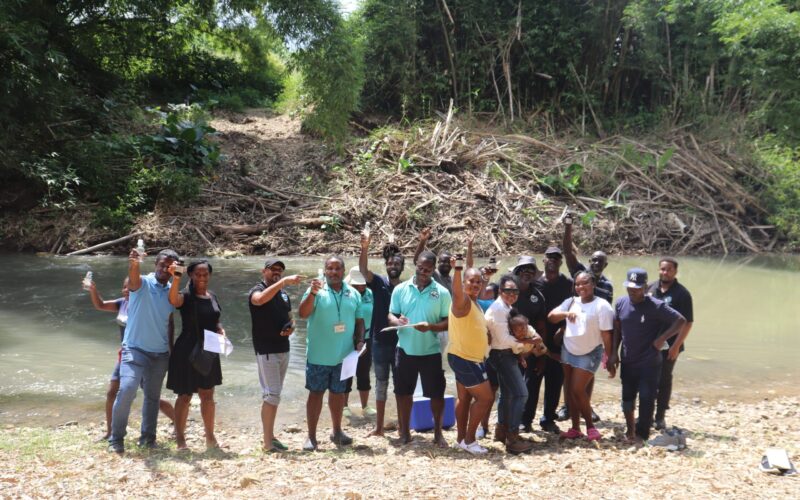NEPA trains river wardens to monitor Rio Cobre for pollution
The National Environment and Planning Agency (NEPA) has trained 28 river wardens to provide timely alerts of pollution incidents in the Rio Cobre in St. Catherine and enable immediate assessments of suspected pollutants.
The development follows several recent pollution incidents at the river, which have resulted in fish kills and other negative impacts.
The newly minted river wardens hail from communities such as Linstead, Bog Walk, Kent Village, Zephyrton and Pleasant Hill.
NEPA notes that the initiative involved members of community action group ‘Friends of the Rio Cobre’ and fisherfolk who are economically dependent on the river.
It says participants were trained in water sampling techniques, identifying pollutants and other abnormalities, the impact of pollution and invasive species on the health of the river, the rudiments of the Wildlife Protection Act, the Natural Resources Conservation Authority Act, and NEPA’s enforcement procedures.
The agency says the river wardens will act as NEPA’s eyes and ears on the ground and are expected to monitor the Rio Cobre for any trace of abnormalities.
They are required to report suspected pollution to NEPA and may assist the agency’s investigation by collecting samples before the evidence is lost or compromised prior to NEPA’s arrival on the scene.
NEPA notes that the engagement of river wardens forms part of a broader initiative to safeguard the Rio Cobre and represents the second phase in the implementation of an early warning system in the area.
The first phase involved installing eight large street signs at various points along the river. These signs bear dedicated emergency contact details for people to use to report a suspected pollution incident.
NEPA says work has already commenced on the third phase, which is to introduce a multi-parameter water quality monitoring technology that would allow the agency to easily detect elevated levels of pollutants and possibly the source of such contaminants along the river in real-time.
The agency adds that its technocrats have accumulated crucial data from their years of activity in the area which would help NEPA to readily match pollutants to the various economic activities that operate along the river.


0 Comments